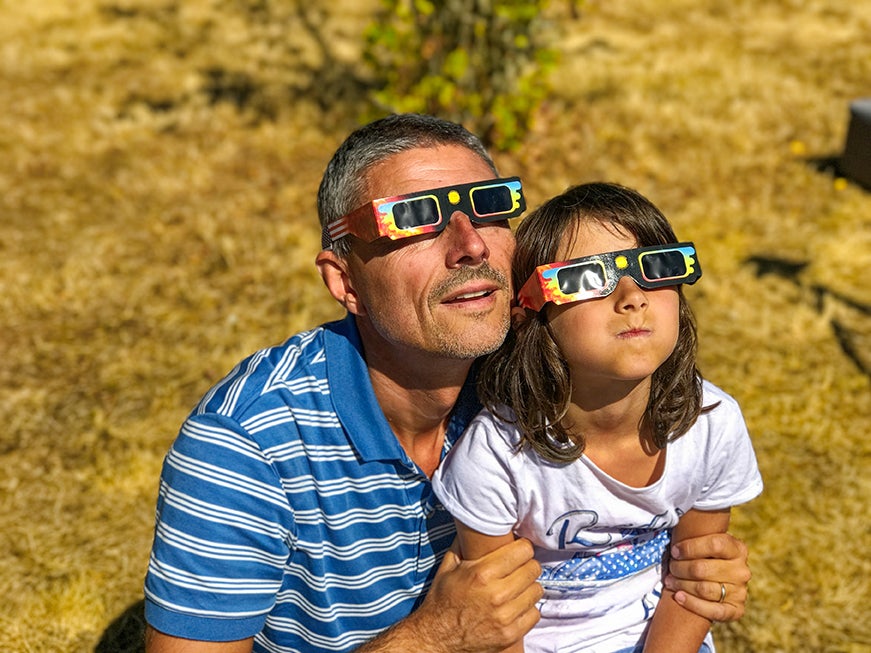Safely Seeing the Solar Spectacular
April 3, 2024By: Joseph Chavez Carey, MD, FAAFP
Categories: Health & Wellness, Garnet Health Doctors, Blog
 On Monday, April 8 the Hudson Valley is due to witness something that won’t happen again for another 55 years: a near-total eclipse of the sun. At 2:10pm, the moon will gradually pass between the Earth and the sun, covering up to 94% of the sun in Orange and Sullivan counties.
On Monday, April 8 the Hudson Valley is due to witness something that won’t happen again for another 55 years: a near-total eclipse of the sun. At 2:10pm, the moon will gradually pass between the Earth and the sun, covering up to 94% of the sun in Orange and Sullivan counties.
While no doubt hundreds of thousands will be ready to look up and witness this rare occurrence, without the proper protection, viewing the eclipse could permanently damage your vision.
From our region, we won’t get to witness the “diamond ring” effect of a total eclipse (that “path of totality” will travel further to the north and west of us) but we will experience significant darkening during the day and a view of a thin, crescent sun.
But this darkening is exactly why you should have eye-protection when viewing the solar eclipse.
The iris, the part of your eye that may be colored brown, blue, hazel, or green, expands or contracts to let light into your eye through the pupil. Normally, when you are trying to see in low-light conditions, the iris expands, your pupil gets larger (dilates), and more light can enter your eye.
When you experience bright light, the iris contracts, making your pupil smaller, and less light enters. If too much light enters your eye, it can actually burn and damage the sensor cells at the back of your eyes (on the retina), in the same way that focusing the sun on an object with a magnifying glass can burn things.
During a solar eclipse, the overall light in your surroundings will decrease, causing your iris to expand and your pupils to dilate, letting in more light. However, the small piece of the Sun that is still visible (that 6%-7% not covered) is so bright that it can still burn your retina, even if viewed for just a few seconds. That damage may permanently reduce your vision –– a condition called solar retinopathy.
It is critical for the safety of your vision to view the solar eclipse using a real and safe pair of solar eclipse glasses. For direct viewing of the sun, solar glasses or filters should be labeled with the ISO 12312-2 international standard. Because some manufacturers fraudulently labeling their glasses, the American Astronomical Society has compiled a list of trusted manufacturers to use for ordering glasses.
Make sure to have your eye protection ready ahead of the eclipse, and keep the protection on for the duration of the eclipse. It’s also important that you monitor any children present, making sure they continue to wear eye protection throughout the eclipse.
With these simple safety measures, the whole family can safely share and enjoy an (almost!) once in a lifetime experience!
